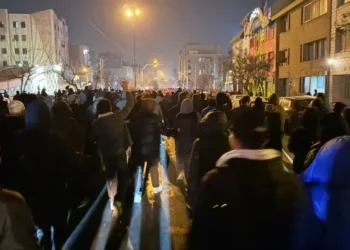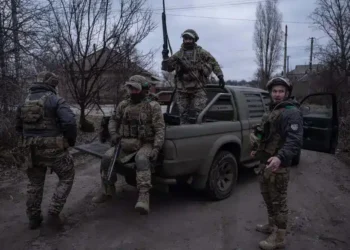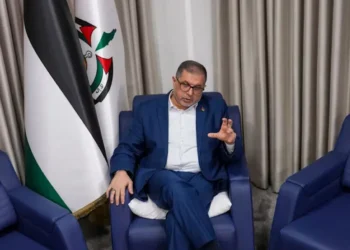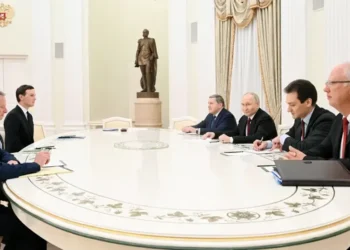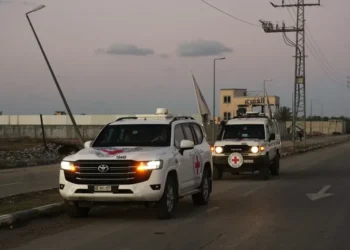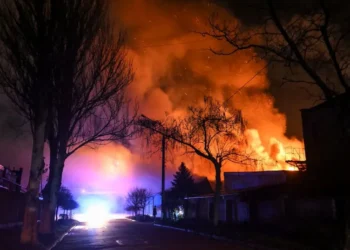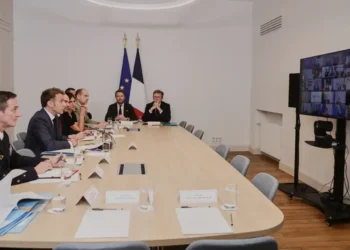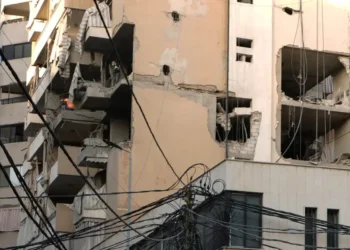U.S. veto on Gaza ceasefire highlights global frustration at U.N. Security Council meeting
Published: September 24, 2025, 14:00 EDT
At a special United Nations Security Council meeting this week, the United States once again found itself at odds with much of the world over how to address the war in Gaza and the broader Israeli-Palestinian conflict. While most nations pushed for an immediate ceasefire, humanitarian relief, and recognition of Palestinian statehood, Washington continued to shield Israel from international pressure.
The session underscored a widening divide between the U.S. and its allies on the global stage, highlighting growing frustration with the use of American veto power to block ceasefire resolutions.
International Calls for Ceasefire
Delegates from across the globe condemned the ongoing war in Gaza, which began after Hamas’ attack on Israel on October 7, 2023. The conflict has since killed tens of thousands of Palestinians, displaced nearly 90% of the population, and left much of the territory in ruins.
Pakistan’s Foreign Minister Mohammad Ishaq Dar described Gaza as “a graveyard for humanity as well as for the global conscience,” urging immediate international action to halt the violence. Many representatives echoed his call for a ceasefire and increased humanitarian assistance, warning of the dire consequences of continued inaction.
Despite near-unanimous support, the United States has repeatedly blocked efforts to adopt such measures. Washington argues that recent resolutions have failed to adequately condemn Hamas and insists the focus should remain on dismantling the group.
U.S. Position and Veto Power
The United States remains firm in its position, citing security concerns and the need to maintain pressure on Hamas. Last week, the U.S. was the only country to vote against a ceasefire resolution supported by all 14 other Security Council members.
American officials also oppose recent moves by France and other nations to recognize Palestinian statehood, arguing that recognition should come only as part of a negotiated peace agreement. As a permanent member of the Security Council, the U.S. holds veto power, effectively blocking any path toward full Palestinian membership at the U.N.
This stance has left Washington increasingly isolated, even among long-standing allies, many of whom are pressing for a two-state solution to end the cycle of violence.
Mounting Global Frustration
Since the start of the Gaza war, the Security Council has convened more than 80 times to debate ceasefire proposals, yet progress remains stalled. Both the Biden and Trump administrations have exercised veto power, drawing criticism from diplomats who question the council’s credibility if one permanent member can consistently block initiatives supported by the majority.
Diplomatic frustration was evident in speeches from European leaders. Danish Foreign Minister Lars Løkke Rasmussen stressed that ending the war in Gaza should be the “bare minimum” expected of the Security Council. “Last week, 14 members of this council were willing to do this. We hope that this can soon become all 15,” he said.
The Absent Players
Israel was notably absent from the session due to the Jewish holiday of Rosh Hashanah. The U.S., meanwhile, sent its ambassador to represent the delegation instead of Secretary of State Marco Rubio, who is in New York for high-level meetings.
U.S. Ambassador Mike Waltz criticized the timing of the meeting, calling it “regrettable” and accusing other members of using the council to “reward Hamas for refusing to surrender.” He argued that international backing for Palestinian demands has hindered ceasefire negotiations, blaming outside pressure rather than recent Israeli military actions.
Israeli Government Response
Israeli Prime Minister Benjamin Netanyahu has indicated that his government may respond to international recognition of Palestinian statehood with unilateral measures, such as annexing parts of the West Bank. Netanyahu is expected to outline his plans during his upcoming visit to Washington, his fourth meeting with President Donald Trump since Trump’s return to office.
Israel maintains that its military campaign in Gaza is aimed at dismantling Hamas and ensuring national security. However, critics warn that the scale of destruction and civilian casualties risks fueling long-term instability and undermining prospects for peace.
Broader Diplomatic Context
The Gaza conflict has overshadowed nearly every other issue at the United Nations General Assembly this year. Leaders from Europe, Asia, Africa, and Latin America have used speeches and bilateral meetings to highlight the humanitarian crisis and call for accountability.
With mounting casualties, growing hunger, and displacement at unprecedented levels, momentum for international action appears to be building. Yet the persistent U.S. veto continues to stall concrete progress at the Security Council, raising doubts about the institution’s ability to deliver on its mandate of maintaining global peace and security.
Conclusion
The latest Security Council session highlighted the deepening rift between the United States and much of the international community over Gaza. While most nations demand an immediate ceasefire and steps toward Palestinian statehood, Washington’s refusal to shift its stance leaves the U.N. gridlocked.
As global frustration grows, the question remains whether international pressure can break the deadlock — or whether U.S. policy will continue to shield Israel from accountability despite near-universal calls for action.
This article was rewritten by JournosNews.com based on verified reporting from trusted sources. The content has been independently reviewed, fact-checked, and edited for accuracy, neutrality, tone, and global readability in accordance with Google News and AdSense standards.
All opinions, quotes, or statements from contributors, experts, or sourced organizations do not necessarily reflect the views of JournosNews.com. JournosNews.com maintains full editorial independence from any external funders, sponsors, or organizations.
Stay informed with JournosNews.com — your trusted source for verified global reporting and in-depth analysis. Follow us on Google News, BlueSky, and X for real-time updates.


